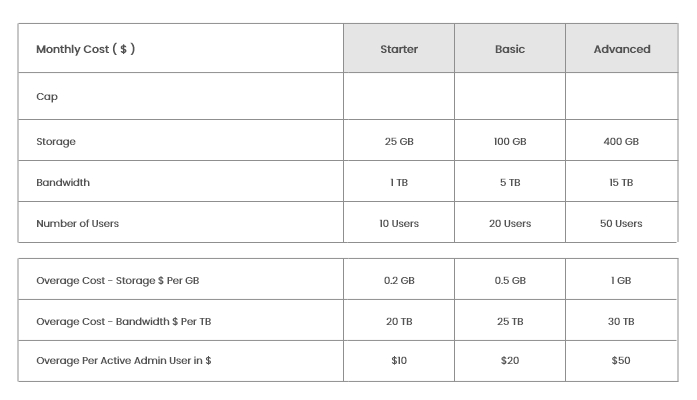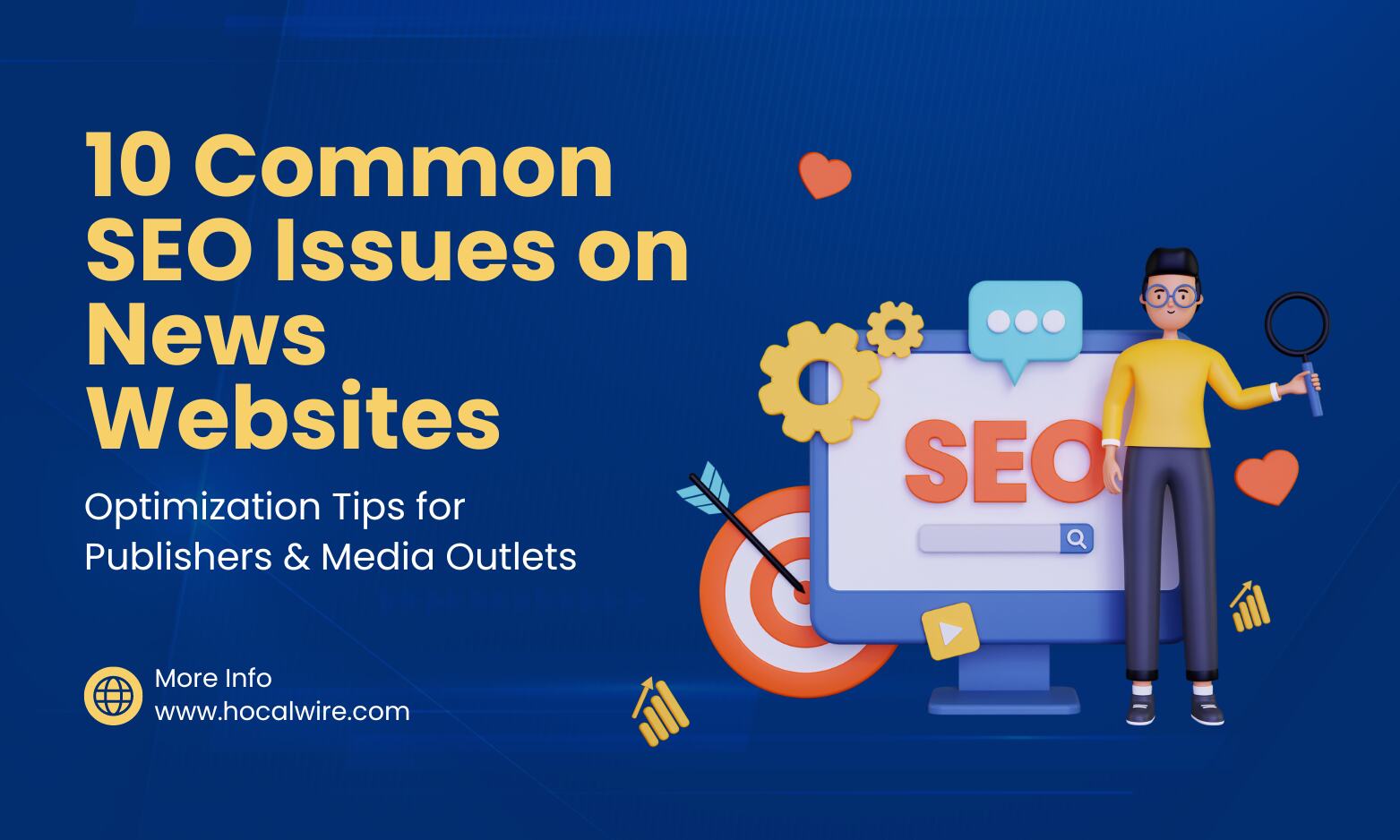



10 Common SEO Issues on News Websites – Optimization Tips for Publishers
- Common SEO Issues on News Websites How to Optimize and how to fix, Tips for Publishers & Media Outlet
An extensive overview of SEO best practices to improve the website health and organic search performance of your digital News website. Search engine optimization (SEO) plays a crucial role in ensuring the visibility and success of websites. News websites, in particular, face unique challenges when it comes to SEO. To help publishers and media outlets enhance their online presence, let's explore 10 common SEO issues encountered by news websites and provide optimization tips to overcome these challenges.
As a significant amount of traffic to news and media websites originates from search engines, SEO is essential for publishers. If not handled properly, basic SEO issues can negatively affect your company's organic growth, regardless of whether you are a national news publisher or a publisher operating in a narrow niche.
Top 10 Common website issues & optimization tips for News publishers
- SEO problems with category pages
- Lack of evergreen content
- Wrong articles ranking due to content syndication
- Poor crawl paths to old content
- Lack of RSS feeds
- Parameters on internal links
- XML sitemaps issues for news websites
- Organization name mismatch in Google Publisher Center
- Missing meta tags for Google Discover
- Cumulative layout shifts(CLS)
1) SEO problems with category pages
Category pages are an important stream of organic traffic to publisher websites, primarily because these templates can rank highly for head phrases like [location] news, tech news, and celebrity news that have high search volume.
The majority of the time, news websites' category pages are not optimised to their maximum capacity, which means publishers are giving their rivals access to more traffic. Given that "celebrity news" is the most searched term, the example below has its metadata optimised for that term. However, this page finds it more difficult to rank towards the top of the SERP results because search phrases like "celebrity gossip," which serve the same SERP goal and templates, are absent.
- To find more relevant term variations that customers look for, keyword research is a great resource. After conducting keyword research, it's critical to examine the SERPs to determine whether distinct pages or pages in the same category rank for various keyword variations.
2) Lack of evergreen content
Several publishers, news publishers, in particular, will be concentrating on producing articles with a limited shelf life and covering major developments in real-time. As a result, organic traffic can be extremely unpredictable and irregular, and media websites may occasionally experience a decline in YoY visitor growth.
I have personally witnessed an increasing number of publishers making investments in evergreen content in recent years. The primary cause of this is that, in contrast to stories that are only relevant for a brief news cycle, evergreen content can generate more steady organic traffic throughout the year and has greater long-term value.
To identify timeless subjects and keywords that readers are looking for, publishers should identify their specialities and carry out in-depth market research. After the study is over, a thorough content strategy and accompanying SEO playbooks should be developed for the year so that real-time news items and evergreen content may be produced continuously in the background.
The accessibility of evergreen content is crucial since, with the volume of news articles that are generated and posted on the website every day, these pieces might easily become lost in the website's architecture. Creating imaginative internal linking modules for category and article pages can aid in the discovery of evergreen material by search engine crawlers and users.
3) Wrong article ranking due to content syndication
The practice of republishing the same piece of material on several websites is known as content syndication. When stories are pushed out across all pertinent publications in an attempt to increase their reach, this usually happens with publishers who have a network of publications in their portfolio.
Although it may not always be the favoured version, Google's own webmaster rules state that they will make every effort to present consumers with the most relevant material. Although syndicating material over numerous websites can cause problems with keyword cannibalization, technically speaking, Google standards do not prohibit it (as long as it does not influence their results and is not syndicated in a way to deceive visitors).
When the "wrong" publication in the portfolio ranks for a news story that would be better suited for a different publication on the syndication network, or when the wrong/secondary publication outranks the original article, publishers frequently encounter problems with content syndication practices.
To avoid giving conflicting signals to crawlers, it is advised that syndicated content point back to the original or primary version of the article via an on-page link.
4) Poor crawl paths to old content
Since publishers are inherently committed to providing real-time reactions to breaking news, their most recent news pieces will always take precedence. However, when there isn't a clear crawl path for search engines (or users) to access the older content, older news items or more evergreen content pieces may get buried deep into the website's design. Establishing a clear route to older articles is crucial because they can still make a substantial contribution to the total amount of organic traffic.
5) Lack of RSS feeds
Publishers can employ feeds (RSS or Atom), websites, videos, and personalised feeds when creating a Google Publisher account and listing the various parts under "content settings."
When publishers have previously depended on websites as a means of displaying content, problems have frequently arisen, including:
- Due to the extensive use of JavaScript in the construction of their category pages, content is not always displayed.
- Google News is not displaying content quickly enough.
- Towards the top of the publisher's news feed is outdated stuff.
- Google News does not display any new content.
In Google News, updating sections to RSS feeds from websites has proven to be far more dependable when displaying a publisher's most recent content. When category pages are created using JavaScript, publishers can now have sections put up for them thanks to RSS feeds.
6) Parameters on internal links
Internal linking modules are typically included by publishers on their websites to aid in SEO and user experience. On media and news websites, the following linking modules are the most prevalent ones you will see:
- Editor picks
- Most popular
- Trending Articles
7) XML sitemaps issues for news websites
Sitemap Issue 1: Caching on XML news sitemaps
Sitemap Issue 1: Caching on XML news sitemaps
Sitemap Issue 3: XML sitemap structure
Poor examples of XML sitemap URLs:
http://www.example.co.uk/sitemap_article.xml?p=3
http://www.example.co.uk/sitemap_article.xml?p=4
XML sitemaps ought to be divided into sections according to the various parts of the website. For instance, a Politics XML sitemap should contain any URLs that deviate from the route "Politics." Here's an improved illustration:
http://www.example.co.uk/sitemap_politics-article-1.xml
http://www.example.co.uk/sitemap_politics-article-2.xml
8) Organization name mismatch in Google Publisher Center
The company name you give in Google Publisher Centre must match the name you use in your XML sitemap and Schema markup. If the company name is different, it may cause problems with indexing, which will impact the performance of AMP and Rich Results in Google News.
This problem arose for one of the publishers I dealt with during a CMS transfer; their organisation name in the new XML sitemap did not match the name on their Google Publisher Centre account. Search Console displayed an error pointing out the discrepancy. As a result, until their organisation name in Google Publisher Centre was changed to match the new XML sitemap, their news articles did not appear in Google News or the "top stories" carousel. This led to poor indexation.
9) Missing meta tags for Google Discover
The lack of the "max image preview" element on a publisher's page may be impeding the performance of that content in Google Discover, however, this is a relatively recent problem for media websites. When articles were updated with the "max image preview" directive, Google released two case studies in 2021 that showed a substantial rise in traffic.
This meta tag instructs Google on the size of the image to display in the preview, which is the primary way it can enhance a page's search engine ranking. Because Google Discover is primarily a visual platform, it is crucial to include a huge image with content to enhance the click-through rate (CTR).
10) Cumulative layout shifts(CLS)
Layout changes can frequently occur on websites owned by publishers. The user experience may be impacted by cumulative layout changes (CLS), as readers will typically become irritated and disinterested. This generally happens when fonts or graphics load, or when display ads are placed up throughout the website.
- CLS issues with advertisements
- CLS issues with fonts
- CLS issues with images
The websites of news publications frequently face some SEO problems because of the particular characteristics of the media industry; these problems might not be as severe in other industries. Publishers who wish to rank highly in search engines must consider several specialised optimisation measures, as you can see. I hope this post will help you better understand the aspects that affect your publication's rankings and provide you with the information to resolve any typical issues I have encountered on these sites over the years. If you're searching for an enterprise-grade content management system, these are significant value adds. To learn more, Get a Free Demo of Hocalwire CMS.

